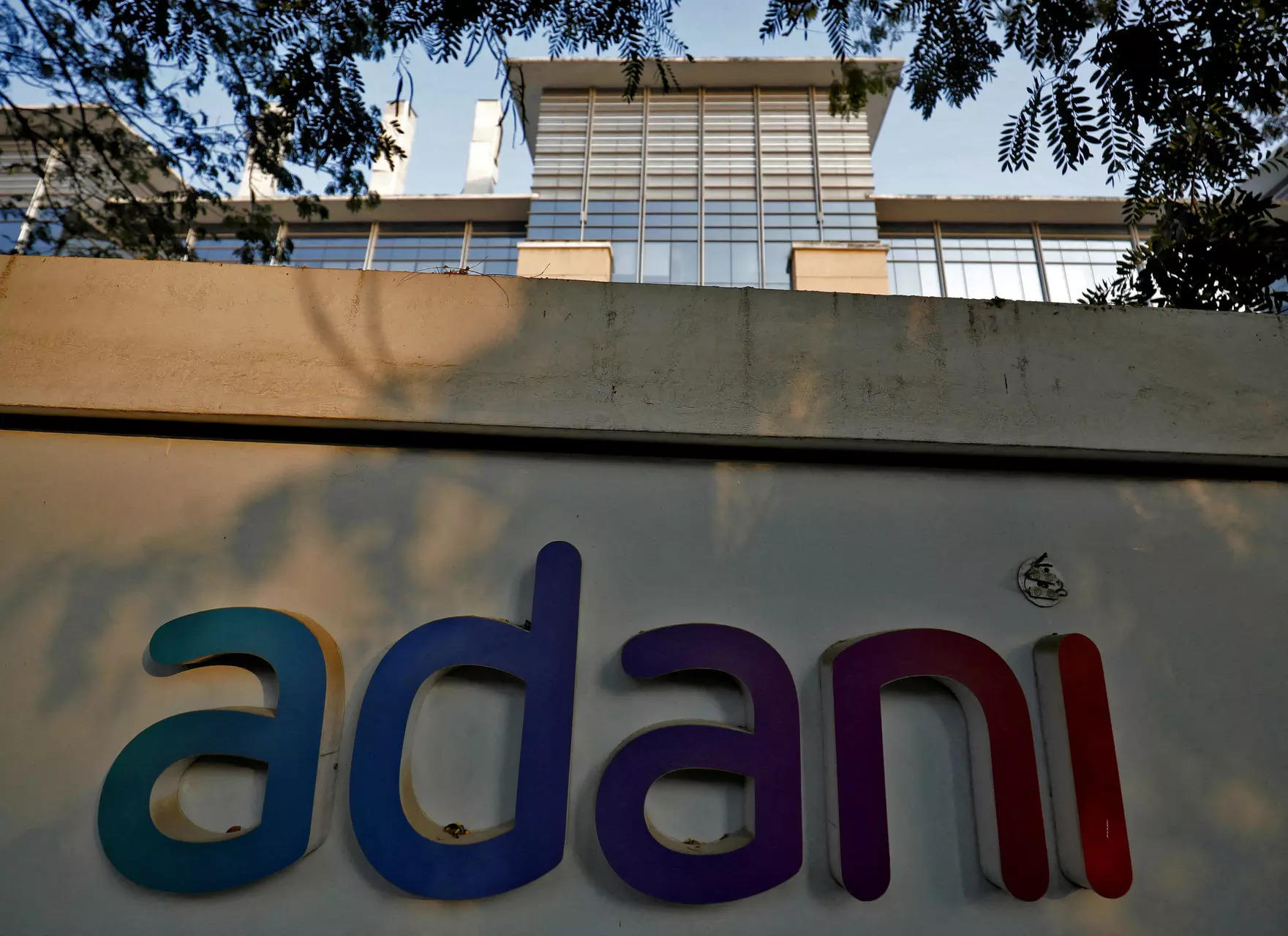A rally over the last week was powerful enough to erase some losses on a series of dollar bonds tied to the conglomerate of billionaire Gautam Adani, debt that had dropped after a short seller accused firms owned by Adani of fraud.
The jump came after the group, which strenuously denies the allegations, raised $1.4 billion for a renewables project and published an initial blueprint for refinancing a solar-energy unit’s $750 million dollar bond that matures in September.
That was enough to also add a whopping $37.5 billion in market value to the group’s listed companies, while notes of the corporation’s electricity and power transmission businesses are now within striking distance of their price level before January’s report by Hindenburg Research.
The rebound suggests the conglomerate, once termed “deeply overleveraged” by research firm CreditSights, is finding favor with investors again. The group, whose operations range from cement to airports and coal mining, has yet to tap overseas bond markets since the January publication, which came at a time when rapidly rising US interest rates curbed offshore issuance by Asian companies.
Billionaire Adani has “clearly got some great assets and he’s clearly able to monetize those,” said Kamil Dimmich, a partner at London-based North of South Capital. “He’s certainly been helped by the underlying businesses becoming more profitable.”
The conglomerate’s units have about $7.5 billion of dollar notes outstanding, according to data compiled by Bloomberg. About $1.58 billion of those notes come due next year, meaning the amount the firm has to pay for replacement debt will be closely watched. It’s already successfully refinanced $3.5 billion worth of credit for the purchase of two cement companies.
As part of the road map for the green energy firm’s bond, the firm said bankers will provide it with a $675 million funding letter in relation to the notes and it will use proceeds from equity transactions to come up with the money.
Over the “next three years Adani Group companies, particularly on infrastructure and green space, will likely outperform as those are all backed by robust assets,” said Sanjiv Bhasin, director at IIFL Securities.
There are still obstacles facing the company in the wake of the short seller report. India’s Supreme Court set up a six-member panel in March to probe if there was a regulatory failure, and also asked the local markets regulator to investigate any manipulation in Adani stocks. The outcome of an investigation by the Securities and Exchange Board of India on the allegations of impropriety and shortfalls in corporate governance is still outstanding.
Apart from delving into the rout in Adani Group stocks following Hindenburg’s report, Sebi is investigating if there was a violation of rules concerning minimum public shareholding, related party transactions and manipulation of stock prices.
“The Adani group has demonstrated that they can access funding even as governance concern lingers, and we believe that it has levers to pull, including raising equity, to cover these maturities,” said Bloomberg Intelligence analyst Sharon Chen. “As funding access normalizes, we’re also watching the companies’ investment pace and the potential impact on leverage.”
The jump came after the group, which strenuously denies the allegations, raised $1.4 billion for a renewables project and published an initial blueprint for refinancing a solar-energy unit’s $750 million dollar bond that matures in September.
That was enough to also add a whopping $37.5 billion in market value to the group’s listed companies, while notes of the corporation’s electricity and power transmission businesses are now within striking distance of their price level before January’s report by Hindenburg Research.
The rebound suggests the conglomerate, once termed “deeply overleveraged” by research firm CreditSights, is finding favor with investors again. The group, whose operations range from cement to airports and coal mining, has yet to tap overseas bond markets since the January publication, which came at a time when rapidly rising US interest rates curbed offshore issuance by Asian companies.
Billionaire Adani has “clearly got some great assets and he’s clearly able to monetize those,” said Kamil Dimmich, a partner at London-based North of South Capital. “He’s certainly been helped by the underlying businesses becoming more profitable.”
The conglomerate’s units have about $7.5 billion of dollar notes outstanding, according to data compiled by Bloomberg. About $1.58 billion of those notes come due next year, meaning the amount the firm has to pay for replacement debt will be closely watched. It’s already successfully refinanced $3.5 billion worth of credit for the purchase of two cement companies.
As part of the road map for the green energy firm’s bond, the firm said bankers will provide it with a $675 million funding letter in relation to the notes and it will use proceeds from equity transactions to come up with the money.
Over the “next three years Adani Group companies, particularly on infrastructure and green space, will likely outperform as those are all backed by robust assets,” said Sanjiv Bhasin, director at IIFL Securities.
There are still obstacles facing the company in the wake of the short seller report. India’s Supreme Court set up a six-member panel in March to probe if there was a regulatory failure, and also asked the local markets regulator to investigate any manipulation in Adani stocks. The outcome of an investigation by the Securities and Exchange Board of India on the allegations of impropriety and shortfalls in corporate governance is still outstanding.
Apart from delving into the rout in Adani Group stocks following Hindenburg’s report, Sebi is investigating if there was a violation of rules concerning minimum public shareholding, related party transactions and manipulation of stock prices.
“The Adani group has demonstrated that they can access funding even as governance concern lingers, and we believe that it has levers to pull, including raising equity, to cover these maturities,” said Bloomberg Intelligence analyst Sharon Chen. “As funding access normalizes, we’re also watching the companies’ investment pace and the potential impact on leverage.”






